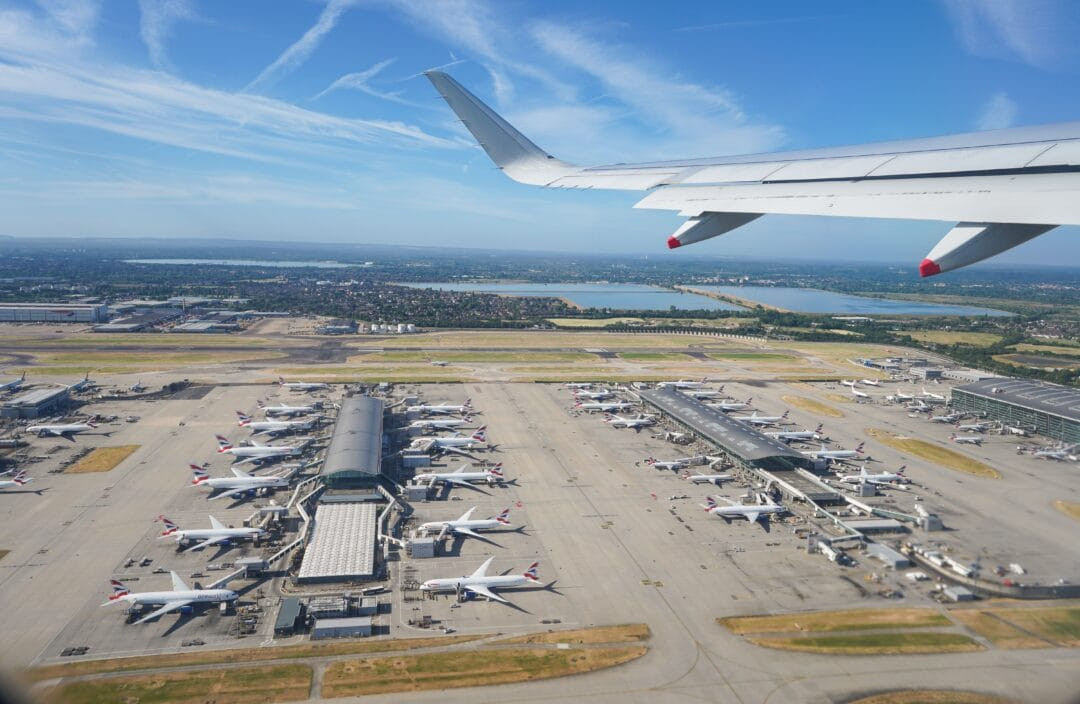A massive power failure caused by a fire on a nearby electric substation forced the closure of London Heathrow Airport on Friday, March 21, 2025, which causes widespread disruption, not only for passengers – but a significant impact on air freight operations in the UK and beyond.
Read: London’s Heathrow Airport announces a full closure due to power cuts
Heathrow, one of Europe’s busiest cargo hes, handles a significant part of the UK’s import and export aircraft, with the most load usually transported in the abdomen of passenger aircraft. The closure, which is expected to last until at least midnight, has led to hundreds of flight cancellations and delayed freight movements, which asked the logistical businesses and stakeholders in the industry to make the alarm sound.
A Heathrow spokesman confirmed:
“Heathrow is experiencing a significant power outage over the airport due to a large fire at a nearby electrical substation. While fire staff responds to the incident, we have no clarity on when power can be repaired reliably. To retain the safety of our passengers and colleagues, we made the decision to close Heathrow to 23h59 on March 21, 2025.”
Due to a fire at an electric substation that the airport produces, Heathrow experiences a significant power failure.
To maintain the safety of our passengers and colleagues, Heathrow will be closed to 23h59 on March 21.
Passengers are advised not to travel to the airport … pic.twitter.com/7swnjp8ojd
– Heathrow Airport (@heathrowairport) March 21, 2025
The airport also warned against “Significant disruption over the coming days,” By encouraging all travelers and containers not to approach the airport until further notice.
Business Correls for Contingency Plans
IAG Cargo, whose operations are very much centered in Heathrow, acknowledged the situation:
“Our colleagues are actively working to reduce disruption and will be in contact with our customers.”
However, other cargo handlers are less optimistic. Logistics firms are now urgently caressing cargo via alternative airports and warn clients of expected delays.
500 logistics’ Stuart Lumsden issued a public update and said:
“All import and export freight operations have been suspended. There will be significant disruptions until the problem can be resolved.”
Similarly, Dean Rawnsley of Cargo Overseas Ltd Describe freight acceptance at Heathrow as ‘inconsistent over airlines’, without an export discharge currently taking place and visibility is limited on redirecting consignments.
Team Air Express released an advice with the use of contingency measures, including Next-Flight-Out (NFO) services, on board couriers (OBC), and prioritized air freight solutions via alternative airports. “With the capacity stretched over the network, some delays can be inevitable,” they warned.
Meantime Pml seatrigo Raised to help the affected delegates offer a collection service from other British airports and transported to London Gatwick or Stansted. CEO Mike Parro said:
“We would like to help companies affected by this situation, especially those whose consignments exist out functional goods. Any delay has a detrimental effect on the shelf life.”
The British International Freight Association (BIFA) expressed frustration on the lack of focus on air freight in the mainstream cover of the Heathrow incident. A statement from the association noted:
“Unfortunately, cargo has been largely overlooked. The impact on both import and export movements will be significant. Airline will fill quickly and not be able to accept fresh cargo deliveries, which will then affect other parties.”
Bifa also warned that the backlog could grow significantly in the coming days as the passenger services resumed and the load capacity in abdominal holdings was limited due to high seat demand.
Airlines on warning
Airlines are reportedly judged consequences and work with their industry teams to lead cargo to alternative hubs. However, detailed answers should not be confirmed yet.
In a statement discussing operational safety, Joji Waites, head of flight safety at the British Airline Pilots Association (Balpa), said:
“Pilots are strictly trained to handle such situations. Each flight takes up with at least one formally nominated alternative aviation and sufficient fuel to get there.”
Balpa also recognized the broader operational ripple effect:
“When events like this occur, aircraft and crew are often in the wrong place, so it will take a few days to get the operation back on track.”
Declaration of London Mayor Sadiq Khan:
My statement about Heathrow’s incident this morning: pic.twitter.com/rv8vrbcw2
– Mayor of London, Sadiq Khan (@Mayoroflondon) March 21, 2025
Iata criticizes infrastructure failures
Iata General Willie Walsh, General of Iata, responded sharply to Heathrow’s handling of the situation:
“This is another case of Heathrow that fails travelers and airlines. If critical infrastructure is completely dependent on a single power source without an alternative, it is a clear planning failure by the airport.”
And from that, the question arises who bears the costs associated with the care of travelers. We need to find a fairer allocation of passenger care costs as airlines pick up the tab alone when infrastructure fails.
– IATA (@IATA) March 21, 2025
More updates will follow as the situation develops.
Have you been affected by the Heathrow disruption? Share your experience with Air Cargo Week: [email protected]


